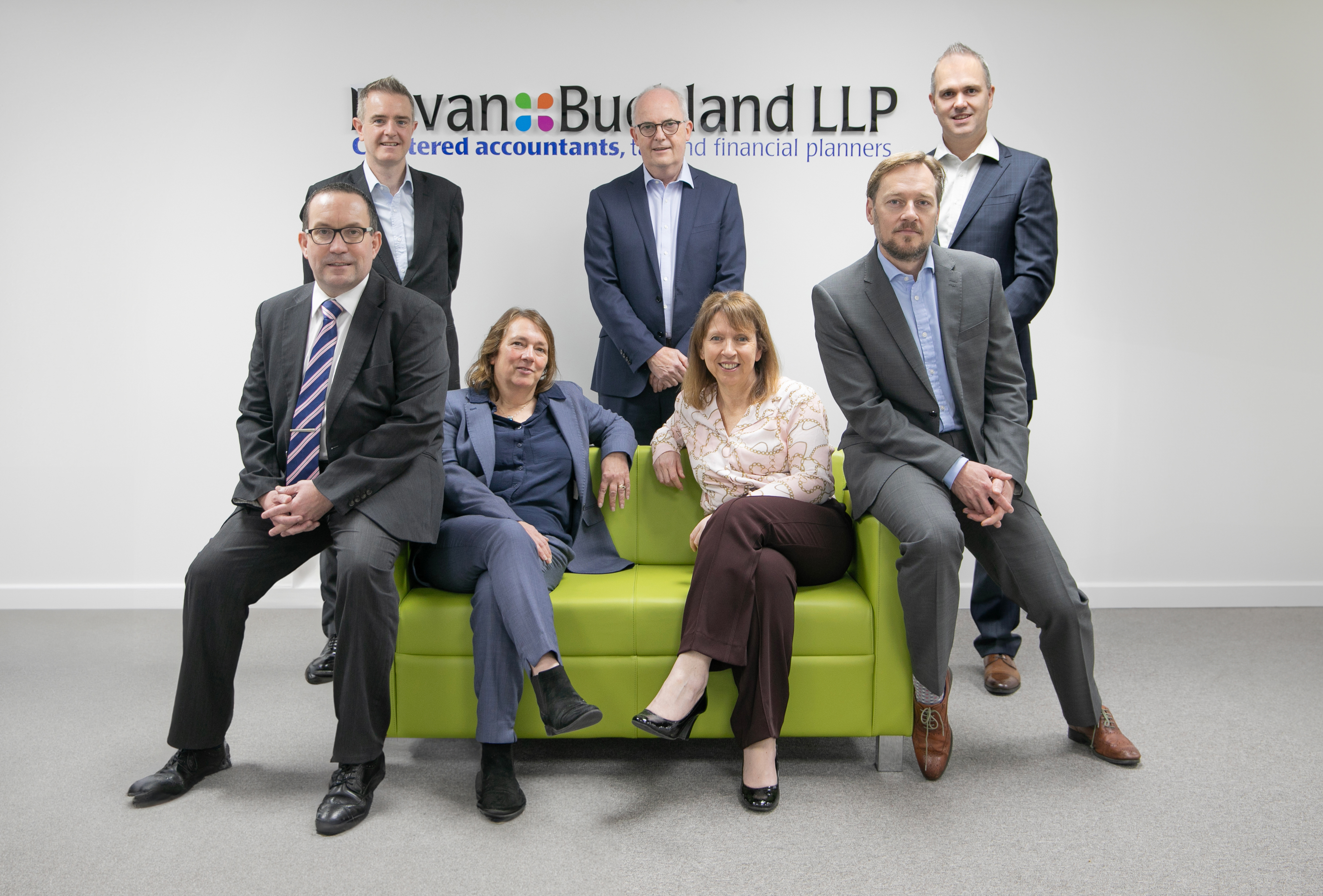The Welsh economy suffers from a lack of succession planning with value and wealth being lost as a result. A panel of experts and owner managers associated with the Fast Track 25 sat down to debate how to solve this problem. Hosted by Bevan Buckland LLP & Hutchinson Thomas.
In attendance
- Wyn Jenkins, director, Seren Global Media
- Emma Norman, business development manager, Jistcourt
- Mark Power, director, The Smoke Haus
- Alison Vickers, managing partner, Bevan Buckland LLP
- Roger Morris, partner, Hutchinson Thomas
- Rhian Williams, partner Hutchinson Thomas
The Welsh economy is especially vulnerable to SME succession failure, as it is reliant on smaller businesses as employers. Some 75% of SMEs have not planned for the transfer of the ownership of their business and 43% of family firms do not have a succession plan in place.
At this round table, hosted by Hutchinson Thomas at its SA1 offices, a number of business owners and experts in this field explored how businesses can plan better for the future. They discussed the sort of decisions and plans that need to be made by owner managers to ensure their businesses do not stagnate and instead allow ownership to pass to new generations – keeping wealth in Wales in the process.
Roger Morris, partner at Hutchinson Thomas, described how the law firm, with offices in Neath and Swansea, has been through many generations of change and partners since its roots in the 19th Century. He said it is now in a very stable place with 13 partners with various skillsets and of varying ages.
Rhian Williams noted that she became the youngest equity partner in the firm’s history at 30 years of age. She agreed that the firm now has a good range of ages and talent but said that ending up in such a position is only possible through good planning and open conversations about the future of the firm. “We have a good spread of people now, which is a healthy position to be in as a firm,” she said.
Alison Vickers, managing partner of Bevan Buckland LLP, described the background of the firm, which was originally formed some 120 years ago. The firm ended up in a position were all the partners were all of a similar age before Cuan O’Shea, the youngest partner at the time, forced a change and brought in a number of young people as partners including Vickers, then aged 29.
Since then, the profile of the partners has changed significantly, with an age range between thirties and fifties, ensuing there is always someone with the desire to step up and take things forward, Vickers said. “I also believe that the role of managing partner should not be indefinite,” she said. “That ensures the constant generation of new energy and new ideas into a firm.”
Morris noted that resistance to change and the idea of lowering the age profile of partners usually comes from the older generation rather than younger individuals. Mark Power, director and founder of The Smoke Haus, said this was surprising. “You would think it would be the other way around; that some of the older partners would be looking to retire.”
But Williams noted: “It can be hard for people to hand over the reins, especially if it is the thing they have done every day for a large part of their lives. We have a lot of clients who are still going in their 70s. It is just what they want to do every day.”
Emma Norman, business development director, Jistcourt, explained how the Port Talbot-based construction company was formed in 1980 and Rob Norman, her father, acquired the business in 1993. In 2015, the company completed a management buyout backed by what was then called Finance Wales, which allowed Emma and her brother, who also works in the business, to become shareholders alongside a number of directors.
Though not all of the directors remained in the business, the move has represented a positive step towards ensuring the ownership of the company endures and new generations are allowed to come through to eventually run it. Emma Norman says the company has found a new-found momentum in recent years that has led to significant growth.
The business recently invested in an expansion of its offering into the South West of England by launching an office in Bristol. It has made the move on the back of winning a substantial £6.2 million contract with Bristol City Council to deliver a three-year planned maintenance programme in properties across Bristol.
Jistcourt, which now employs around 90 staff and has a turnover of some £13 million, will use the office as a platform from which to grow in both the South West of England and the South East of Wales. Norman also noted that the willingness of the company to offer equity to those willing to drive the business forward has also helped it attract better people in recent years.
Power, founder of The Smoke Haus, which has restaurants in Swansea and Cardiff, described how he launched the restaurant chain nine years ago on the back of a desire to work for himself and put into practice a concept he had around offering fantastic barbequed-style food in an American/rock themed environment.
He accepted that, in the catering/restaurant business, it was less common for succession plans to become a reality as it is easier to start from scratch. He said his plans for the business was to explore the possibility of new restaurants across South Wales. “But in the restaurant business you need an owner with passion also close to the business at all times,” he said. “You need that desire to make a difference and that hunger to succeed. You have to be that positive, glass half full person, no matter what problems are being thrown at you.”
With this in mind, Power also noted the problems many businesses face, funding successors with the desire and determination to take over a business and run it. This was a point the attendees agreed on. Vickers stressed that the best person to run a company was often not the best person at practicing the profession or skillset required in that same business. “A good lawyer or accountant or cook will not necessarily be a good managing director or partner,” she said. “To run a business, it is more important you have courage and business acumen and the ability and willingness to make tough decisions – even though sometimes you might get them wrong. “Some individuals might be fantastic within their work roles, but they expect to be spoon fed. You cannot run a business with that mentality.”
Morris said, in his experience of working with successful business owners as clients, the two most important qualities an individual needs are: an ethic of hard work and the willingness to take risks and be comfortable with that. “And perhaps imagination and good organisational skills as well,” he said.
Williams agreed that while some lawyers are also very good sales people, others are more comfortable working with existing clients and simply offering good advice.
Where suitable future owners are not available in-house, the panel debated the merits of bringing external individuals in to do a management buy-in. While they acknowledged that this can work, they also discussed its pitfalls since the incomer will not have an intrinsic knowledge of the company they are buying into including its culture and challenges.
Vickers said that she believed it was important for business owners to understand what they want from a business and what their final goal might be. “I have always believed that if you do not know your end goal, how do you know when you get there,” she said. “I encourage clients to consider having five-year and 10-year plans in place; in the context of succession planning this helps companies consider how they bring people through earlier.”
The panel were asked to consider what steps and owner-manger might take and in what order to put in place a succession plan. Vickers said that, assuming they have identified suitable buyers, be they existing staff or external, the first step would be to have an outline discussion about their expectations from the deal and an approximate value of the company.
“You can find very quickly that their expectations are unrealistic both in terms of the company’s value and the timeline they want,” she said. “Then you meet the buyers and do a similar exercise. I would also suggest assessing their assets and liabilities at this stage.”
She said that if a deal looks possible after all this, the next step is to speak to both the company’s bank and other banks. “Remember, the bank will be backing the buyers not the seller, so the new management team must be heavily involved now. I would also strongly suggest speaking to the Development Bank of Wales. They can offer support to plug any gaps in a deal to make it happen. Supporting MBOs is a big part of their remit and they are very supportive.”
Morris stressed the importance of having robust legal agreements in place. The legal agreements usually start with a non-legally binding heads of terms agreement. This will be followed by extensive due diligence followed by whatever is needed to ensure what is agreed in delivered on legally. “Every deal is different but there will be a sale and purchase agreement as well as various transfers of assets and ownership depending on the circumstances,” he said. “You need to deliver the spirit of what they want to achieve.”
He also said a well thought out shareholders or partnership agreement and power of attorney should be seen as critical at this point. He noted that the lack of such agreements can cause huge problems for companies in the event of sudden death of incapacity of the owner. “In effect the assets and accounts can end up frozen,” he said.
Williams added: “You can apply to a court to allow someone else control but it can take months and is very expensive. We recommend that all business owners make a power of attorney to appoint a suitable attorney to make decisions concerning their business interests if they are unavailable or lack mental capacity.”
Vickers noted that there are many ways in which a deal can be structured, right from the seller receiving 100% of the value on day one to a slow earn-out over many years where they remain involved in the business. But Morris also warned on the dangers of deferred payments, since these rely on the new management team succeeding.
But the panel agreed that more thought to succession planning should be given by companies; the alternative is value and wealth being lost from the local area. “But it does take courage and hard work,” Power said.










